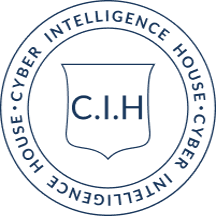In my recent piece, “The Flow and Pace of Knowledge Work in the AI Era,” I explored how synthetic intelligence is fundamentally transforming work patterns and challenging traditional workflow paradigms. That article sparked numerous questions from readers about practical implementation: “What specific skills should I develop?” “How do I position myself in this new reality?” “What happens to management roles?”
This piece addresses those questions by examining what I call the “Era of Execution” – where individuals armed with AI can achieve what previously required entire departments. Throughout history, shifts in technology have transformed how we work, but the current transformation is uniquely disruptive in its speed and scope.
The Shift from Teams to Exponential Individuals
In the previous decade (2010-2020), businesses operated through larger teams and centralized project management. Progress required coordination across many specialists and approvals through multiple management layers. Productivity improvements were incremental, and hierarchical structures ensured control but often at the cost of speed.
Today’s reality looks starkly different:
- Small teams are producing outsized results by harnessing AI. Multiple AI startups have reached $50-200 million in annual revenue with teams of just 10-50 people – accomplishing what once required hundreds or thousands of employees.
- Individual “full-stack” productivity has emerged, where knowledge workers manage their own AI suite of tools for coding, writing, research, design, and analytics. This effectively turns them into one-person teams with 10-100× output compared to their 2010s counterparts.
- Hierarchies have flattened because technology now handles much of the routine coordination. Decisions can be made quickly by frontline contributors using real-time data, without waiting for multi-level approvals.
The question isn’t whether this shift is happening – it’s whether you’re prepared for it.
The New Skill Paradigm
Hard Skills: From Specialization to AI-Enhanced Mastery
In the 2010s, hard skills centered on proficiency in specific domains and tools. Software engineers were valued for expertise in particular programming languages, analysts for mastery of specific BI tools, and so on.
Now, AI literacy has become a core skill across all knowledge work. Professionals who can effectively use AI assistants dramatically outperform those who cannot. More than half of hiring managers now say they wouldn’t hire a candidate without AI literacy.
The hard skill profile has broadened – employers seek T-shaped individuals with depth in one area but familiarity with many tools and the capacity to continually learn new technologies. LinkedIn data shows people have a 40% broader skillset on their profiles in 2023 compared to 2018, underscoring how rapidly skill expectations are expanding.
Soft Skills: From Coordination to Executional Agency
As AI handles more routine coordination, companies are looking for people who excel at what only humans can do: creative thinking, exercising judgment, and collaborating in less structured, more proactive ways.
A defining soft skill of this new era is what I call “executional agency” – the capacity to take an objective and run with it independently. With fewer managers in the loop, individuals must define tasks, set priorities, and drive projects to completion on their own.
In this environment, adaptability is paramount. The modern workplace changes quickly – tools update, priorities pivot, and even whole roles appear or vanish. Where workers in the previous decade might have had relatively stable job descriptions, today’s employees might see their role redefined yearly as new technologies emerge.
The Diminishing Middle Management Layer
One of the most profound consequences of this shift is the reduced need for traditional middle management. AI systems are increasingly handling the information processing and coordination that once justified these roles:
- Routine tasks like scheduling, progress tracking, and performance reporting can be automated by project management AI and OKR tracking tools.
- Decisions are increasingly made by those closest to the work, guided by data. AI can feed real-time insights to frontline staff who can act immediately, instead of waiting for a manager’s approval.
- Gartner predicts that by 2026, 20% of large organizations will have used AI to flatten their hierarchy, eliminating at least 50% of current middle management roles.
This doesn’t mean managers vanish entirely – but their role changes dramatically. The remaining managers focus on high-level strategy, coaching, and exception handling rather than day-to-day coordination. They must interpret analytics and AI outputs to guide their teams, requiring them to become savvy users of AI themselves. Importantly, the “team” they manage may increasingly consist of a pool of AI agents alongside human talent – requiring new skills in orchestrating both human and artificial intelligence toward common goals.
The Challenge of Skill Obsolescence
Perhaps the most daunting aspect of the Era of Execution is the accelerating cycle of skill obsolescence – what some experts call “skill inflation.” Much like monetary inflation devalues currency, skill inflation devalues established competencies over time.
Research by Deloitte finds the “half-life” of a professional skill is now roughly 5 years, and shrinking further in high-tech fields. This means about half of what you learned five years ago might no longer be relevant.
What’s particularly striking is how dramatically this rate of obsolescence has accelerated. By my estimation, skill inflation was perhaps 5% or less annually from 2000-2010, meaning professionals could comfortably go years without major upskilling. This increased to roughly 5-10% annually from 2010-2020, as digital transformation gained momentum.
But since 2020, we’ve entered a period of hyperinflation for skills. I believe we saw approximately 50% skill inflation between 2020-2023 as remote work, cloud technologies, and early AI tools reshaped roles. Since 2023, with the emergence of generative AI, we may be approaching 100% annual skill inflation in many knowledge work domains.
While these figures aren’t formally measured like monetary inflation, they reflect a profound truth: the pace at which skills lose relevance has completely transformed from gradual to exponential. What once decayed over a decade now becomes outdated in a year or less.
This creates a productivity paradox: employees who become 10× more productive don’t end up doing 1/10th the work; they are given 10× more responsibilities or tougher problems. As AI makes routine deliverables faster to produce, the premium shifts to outcomes requiring human judgment, unique imagination, and complex problem-solving.
How to Thrive in the Era of Execution
For those willing to adapt, the Era of Execution presents unprecedented opportunities. Here’s how to position yourself:
1. Use AI to Create Your Personal Learning Environment
Develop a disciplined approach to self-education using AI. Set specific learning goals, then leverage AI to create customized curricula, generate practice exercises, and test your understanding through quizzes and simulations tailored to your learning style.
This democratization of education makes it possible to learn almost anything rapidly – but beware of fluency bias, the false sense of mastery that comes from merely browsing information. Real learning requires structured practice, deliberate application, and rigorous self-testing. The ability to design your own educational pathways with AI will separate those who truly develop new capabilities from those who merely skim the surface.
2. Become the CEO of Your AI Stack
Develop proficiency with multiple AI tools in your domain. Learn to orchestrate these tools – knowing which to deploy for a given challenge and how to integrate their outputs.
An analyst who can use AI for data preparation, analysis, visualization, and reporting will outperform one who only uses traditional tools for each step. Experiment constantly with new AI capabilities to stay ahead of the curve.
2. Master Self-Management
With fewer managers overseeing your work, excellence in self-management becomes critical. Develop skills in:
- Setting and prioritizing your own goals
- Creating realistic timelines and deadlines
- Maintaining motivation and focus without external structure
- Evaluating and iterating on your own work
The most valuable employees won’t be those waiting for instructions, but those who can drive projects forward independently.
3. Cultivate Adaptability
The ability to quickly learn new tools and adjust to changing circumstances is now essential. Allocate regular time for learning – many professionals now set aside several hours each week specifically for upskilling.
Focus not just on learning specific tools but on meta-learning: understanding how to rapidly acquire new skills when needed. This creates a compound effect where your learning efficiency improves over time.
4. Prioritize Uniquely Human Skills
As AI capabilities expand, focus on developing the skills machines struggle with:
- Creative problem-solving and insight
- Strategic thinking and decision-making
- Interpersonal intelligence and emotional awareness
- Ethical reasoning and judgment
The professionals who thrive will be those who blend technical fluency with these distinctly human capacities.
5. Build Your Credibility Through Execution
In this new era, your worth isn’t determined by your position in a hierarchy but by your ability to execute. Build credibility by consistently delivering results, even without formal authority.
Document your impact using clear metrics. Can you show that you’ve delivered work that previously required multiple people? Have you automated processes that used to be manual? These concrete examples will separate you from those merely claiming to be adaptable.
The Future Belongs to Execution
For university students, startup employees, and seasoned professionals alike, the key is to embrace this new reality: in the Era of Execution, a single talented, AI-augmented person can achieve what once took an army. Organizations are already restructuring around this truth, eliminating roles that don’t create direct value while empowering those who can execute independently.
The winners in this environment won’t be those with the most impressive titles or largest teams, but those who can harness AI to deliver outstanding results with minimal oversight. By developing executional agency, continuously refreshing your skills, and mastering the art of human-AI collaboration, you’ll not only survive this transition – you’ll thrive in it.
The Era of Execution is here. The question is: are you ready to execute?
Click here to go to Mikko’s personal blog page



